Emotional Health - An Essential Piece Of The Journey To A Healthy Mind

In Australia, 45.5% of the total population experiences an imbalance in their mental health at some point in their lives. Besides increasing the potential of developing other types of physical illnesses, this means that almost half of the population has struggled to see the positive side - or even the purpose - of being productive at work or school or in maintaining relationships. For others, this has meant the taking of self-deprecating decisions or experiencing an overwhelming sensation of stress and anxiety that seems to be unmanageable. Altogether, it appears like the common consequence of poor mental health is the inability to find joy in life.
Before we begin, let’s address a relevant question.
What is ‘good mental health’? According to the Mental Health Foundation, the answer to this goes beyond the absence of medically diagnosed mental health problems. It’s also about the presence of positive characteristics. Having a healthy mind is one in which there is an ability to learn, feel, express a range of positive and negative emotions, create and maintain adequate and good relationships with other people. It also involves feelings of contentment, having self-confidence and an enthusiasm to live.
All these sets of skills and characteristics come together under one important type of intelligence: Emotional Intelligence.
Emotional intelligence is the ability to be aware, process and manage emotions in a positive way. This is done in order to then further strengthen our relationships, become proactive, help us succeed in our professional careers and long term goals. In other words, high emotional intelligence is a very important stepping stone towards becoming the best version of ourselves that we want to be.
Emotional intelligence is, of course, highly connected with emotional health. Although they are often thought to refer to the same thing, there is a difference between mental and emotional health. Mental health encompasses three major areas of concern - social, psychological and emotional wellbeing. The WHO tends to condense the term to describe mental health as the way we “think, feel and act”. Emotional health focuses on emotional wellbeing at a much narrower approach. Knowing how to manage emotions and have adequate emotional responses to the rollercoaster ride life feel like sometimes is extremely helpful. In short, being emotionally healthy allows you to pick yourself back up.

How to Manage Emotions
Knowing how to manage emotions is the core of emotional intelligence. Keep in mind that improving your emotional intelligence and overall emotional health is not an easy path. Having to face your fears, challenges, and your own demons can be exhausting, and quite demotivating. But as Mandela once said, “It always seems impossible until it’s done”. And as Seneca would add, “Difficulties strengthen the mind”. What we mean by this, is that the hard work, struggle and emotional challenges that come when overcoming difficult obstacles only translates into an inner strength. This doesn’t necessarily mean that future problems will become easier to manage. Rather, it means that approaching them from a positive, non-stressful and pragmatic angle will help resolve them more efficiently; while keeping negative thoughts and emotions to a minimum.
Self-awareness
To manage emotions, being self-aware is very important. Self-awareness is all about looking inside and reflecting on what emotions are going through us. It’s through reconnecting and accepting your feelings that you’re able to deal with them. Mindfulness is probably the best way of becoming aware of your emotions. Mindful practices encourage the process of bringing attention to whatever is happening in that exact moment; whether it is external or internal. Examples of mindful practices are mindful meditation sessions, body scan exercises, journaling or mindfully using all five senses.
One of the most powerful properties of aromatherapy and essential oils is their ability to enhance concentration and create peaceful spaces for self-reflection, grounding and reestablishing contact with our internal dialogue and emotions. For example, from Oleu Life’s Natural Perfumes line, Deep in the Forest and Mental Clarity are perfect when looking to ease your mind, and create moments of emotional lucidity during the day. For times a deeper inner conversation is needed, opting for an essential oils pack like Inner Balance diffuser at home or during a meditation session can help ground your mind while strengthening the bond between the body and soul.
Overall, identifying and accepting your emotions is the first step in your journey towards reinforcing your emotional health. Without it, it can be very difficult to know where or how to start dealing with them.
Important Note: Of course, seeking help through a trustworthy psychologist or other mental health professional is also largely encouraged. It’s important to note that essential oils are not to be used as a replacement for medical attention. They are most effective when used in complement to professional treatment, or as a way to help produce the effect of feeling grounded and connected with one’s self. However, they must not be used as the only method for resolving mental health issues.

Release emotions
Releasing emotions could be said to be the second stage for improving one’s emotional health.
Think of it this way. What happens if you keep pumping a balloon with air? At one point it bursts. Although it (fortunately) doesn’t happen as literally to our body and minds, the metaphor is quite suitable. The more we bottle things up, the more likely we are to suffer from an increasingly overwhelming feeling of stress and anxiety - which can only lead to a rather dark place.
Once you’ve processed them, releasing emotions is therefore crucial. There are many ways to do so, depending on what works best for you, and what the situation you’re currently dealing with is like. The objective is to transform negative emotions into positive results. For example, many people choose to release anger and frustration in the gym. Others prefer to vent in a journal, to close friends, or through a professional therapy session. Mindful breathing, yoga, meditation, listening to music, being creative and artistic are others among the many methods of releasing emotions.
Everyone has different methods and preferences; so it’s important to find what works for you. Don’t worry, we know it can be difficult and frustrating to find your path. But once you have, you’ll start noticing how your vision and perspective for challenges shift from grey to a spectrum of colors.

These are the facts: Life is very short, there will always be ups and downs, and the ‘downs’ are naturally (and scientifically proven) bound to carry more weight in our spirit.
Although there is no real opportunity for choosing what, when and why things happen to us, we can choose the way we go about it. Oleu Life is centered on wellbeing and is highly encouraging on seeking and finding ways to channel anxieties away while inviting in more feelings of joy, happiness, and peace.
Emotional health is an extremely important contributing factor for overall good mental health. Remember to accept your feelings - they are valid and there for a reason. Equally, remember the importance of managing and releasing your emotions to reinforce your inner strength and become more comfortable and ready to face the challenges that life can bring.
Sources:
Glen Xiong - Why It’s Important to Care for Your Mental Health



